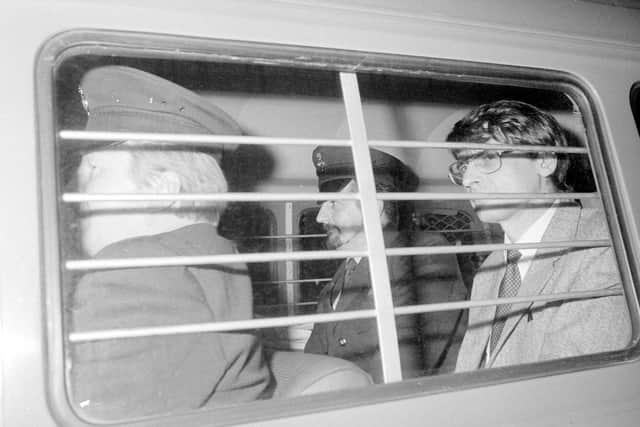Dennis Nilsen: Who was the Scottish serial killer, where is his house - and what is new Netflix documentary about?
Referred to as the “kindly killer”, Angus-born Nilsen was a civil servant who would meet and befriend gay men during the late 1970s and early 1980s, before offering them food or lodgings for the evening back at his North London flat.
His victims, including a young Edinburgh dad, were often homeless or living off-grid, having slipped through the cracks of society and were therefore welcoming of this stranger’s apparent generosity.
Advertisement
Hide AdAdvertisement
Hide AdWhen he was finally caught, Nilsen had murdered as many as 15 men over a period of five years, making him Britain’s most prolific serial killer of the time.


He was jailed for life in 1983, with a recommendation that he serve a minimum of 25 years, for six counts of murder and two of attempted murder.
Although it is unclear exactly how many men Nilsen murdered, three of his victims were Scots.
Among them was Billy Sutherland, who had left his home in Edinbugh’s Muirhouse for London in August 1980 to find a job.
He had worked as a chef in London previously and hoped to find something similar when he visited the job centre where Nilsen – a former Army cook and Met police officer – worked.
Hearing his Scottish accent, the killer suggested they to go for a drink.
Unsuspecting Billy, 26, met the murderer in a London pub before heading to his flat after reportedly telling him he had nowhere to go.
Hours after they met, Billy became Nilsen’s victim – but it was three years before his family discovered he was dead.
Advertisement
Hide AdAdvertisement
Hide AdThey reported his disappearance in 1980 to police and he remained a ‘missing person’ until Nilsen’s killing spree was uncovered in 1983.
Officers who dug up Nilsen’s garden, where they found hundreds of human teeth and body parts, discovered a piece of Billy’s skin with a tattoo on it and his false teeth.
Nilsen died behind bars in 2018, at the age of 72.
Following last year’s ITV drama Des starring David Tennant, director Michael Harte made Memories Of A Murderer: The Nilsen Tapes using more than 250 hours of never-before-published cassette tapes of the killer’s private recordings from inside his prison cell and access to 7,000 pages of his unedited autobiography.
He said: “The more you dig into his story, the less you start to understand about him because he’s so contradictory.
“And what I realised is when I was listening to his audio tapes was if we’re going make this film, we obviously have to interview other people here... and what I realised was that a lot of the things he was saying, more often than not, were being contradicted by other people, by the people I interviewed.
“So what I had on my hands more than anything was, here’s an unreliable narrator.
“But what I can try to understand is the fact that I could learn much more about why he got away with what he did. The second half the film is structured in such a way that that question starts to grow, why did he get away with it so long.”
